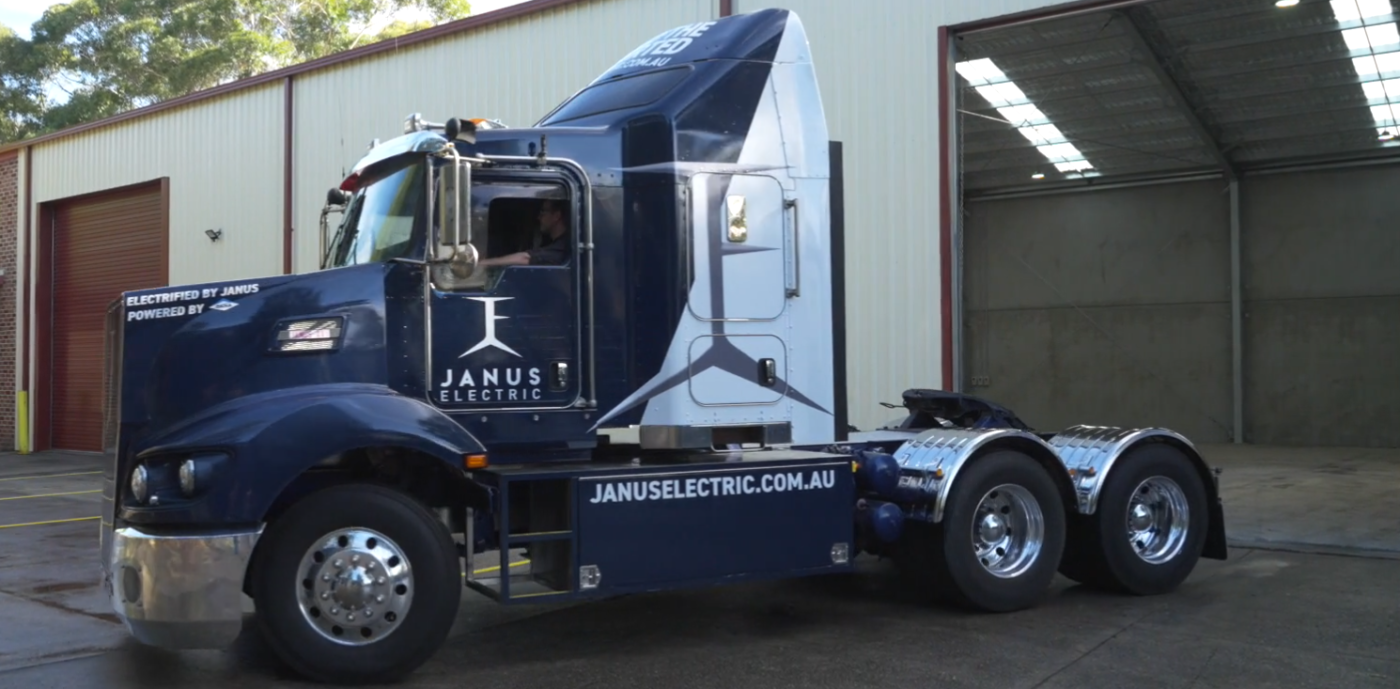Janus Electric & Li-S Energy collaborate on batteries
In Australia, battery developer Li-S Energy has signed a collaboration agreement with electric truck developer Janus Electric to power around 400 electric trucks. The agreement will see Li-S Energy develop and test lithium sulphur and lithium metal battery cells to suit the requirements of the Janus Electric exchangeable prime mover battery packs.
Janus electric is already active in converting existing heavy-duty diesel vehicles, such as those used in the mining industry, to battery-electric systems. The Australian company has developed a proprietary system for conversions to zero-emission systems utilising software, multi-party battery ownership and a battery swapping and charge network. Under the deal with the Australian battery technology firm Li-S, the two companies are to develop novel battery cells to power the Janus Electric vehicles.
The agreement between the two Australian companies involves the development of lithium-sulphur chemistry batteries which have a far higher energy density than conventional lithium-ion batteries. Until now, lithium-sulphur batteries have had the problem of very rapid degradation. However, Li-S company – borne of a joint venture between PPK Groups Australian subsidiary, BNNT Technology Limited (BNNTTL) and Deakin University in Melbourne – claims to have found a way to combat cell degradation. This is apparently possible through the introduction of a nano-material called Boron Nitride Nanotubes (BNNT).
In developing the new technology for the conversion of heavy-duty vehicles, the collaboration between the two companies should lead to being able to increase the vehicles’ range between battery swaps and reduce and the overall weight of each battery pack. This is being applied to both lithium-ion and lithium sulphur batteries with the development of the new lithium-sulphur and/or lithium metal battery packs using BNNT and Li-nanomesh technology, with the aim of extending the vehicle range further and reducing the weight of the battery. The plan is then for Janus Electric to progressively phase out lithium-ion cells and purchase Li-S Energy cells to meet its target of 495,00 cells (at a total of 247.5MWh) by the end of 2023.
It appears that Janus Electric is looking for further investment and collaboration partners in anticipation of the rapid decarbonisation of the trucking sector – as has been demanded in Europe and the USA and is rapidly progressing in China. Janus points out that converting existing vehicles to electric is much more economical than companies being expected to completely renew their entire fleets in a short amount of time, with the still quite limited choice of fully-electric vehicles currently on the market – especially with larger commercial vehicles.
Janus seems to have a logical approach here. In the USA, Lightning eMotors has seen enormous success recently with the strategy of converting existing commercial vehicles to electric drives. Janus Electric is also picking up on another recently rapidly expanding strategy of battery swapping for the trucking sector – where time on the road is money and long recharging periods of large batteries poses an economic problem for logistics companies. In China, the government has focussed on commercial electric vehicles for battery swapping pilots, initiatives and investments. In fact just yesterday, energy giant BP announced that it has acquired a stake in Chinese battery swapping specialist Aulton.
The Australian landscape has some rather unique characteristics. Apart from a large and rather booming mining sector, the country has extremely concentrated population centres in sprawling cities that are vast distances apart. This poses challenges to the trucking industry. The Australian Federal government is famously less than enthusiastic about acknowledging that the fossil-fuelled era will ever end but has finally released a Future Fuels & Vehicles Strategy. Janus Electric is located in New South Wales, a state whose government has already pledged more towards the decarbonisation of transport than the entire federal government, so the timing may be just right for a rapid transition of commercial vehicles as Janus envisages.
stockhead.com.au, aumanufacturing.com.au, themarketherald.com.au, (both company websites: lis.energy, januselectric.com)





0 Comments